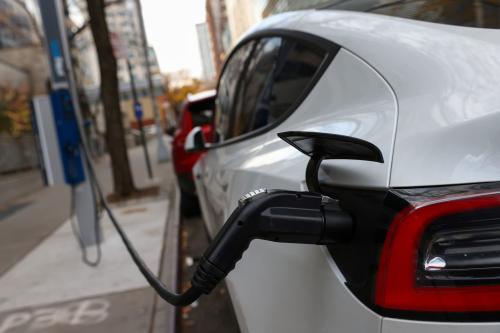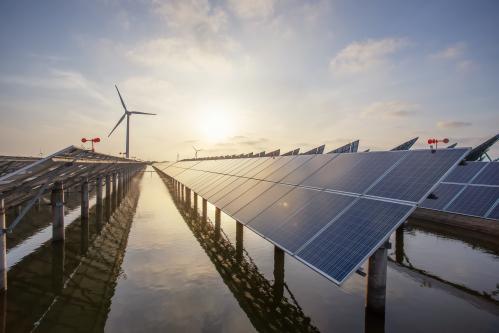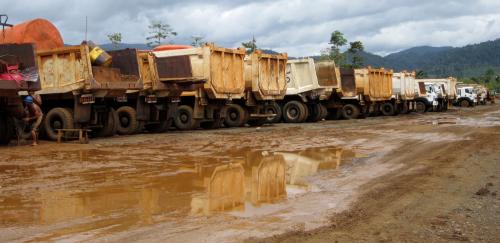TOM FOREMAN, CNN ANCHOR, THIS WEEK AT WAR: 38 million Americans are on the highway this thanksgiving weekend, and if you’re one of them, chances are you’ve had to stop for gas and pay a lot more than you once did. High gas prices are burning holes in a lot of wallets, but how are they affecting oil-rich U.S. adversaries like Iran and Venezuela. CNN business correspondent Ali Velshi is where he should be, among all of the holiday shoppers in Long Island, New York. And in our New York Bureau, David Sandalow, a senior fellow at the Brookings Institution. Guys, before we do anything else, let’s listen to this comment by Venezuelan Hugo Chavez from a few days ago
(BEGIN VIDEO CLIP)
PRES. HUGO CHAVEZ, VENEZUELA (through translator): If the United States does the crazy thing of invading Iran or attacking Venezuela again. The barrel of oil is not just going to reach $100, it can make it to $200.
(END VIDEO CLIP)
FOREMAN: David, do you think Chavez can be throwing around this kind of talk if oil wasn’t already very high?
DAVID SANDALOW, AUTHOR, “FREEDOM FROM OIL”: No, he couldn’t. And you know, Tom, look, it’s been 25 years since U.S. diplomats were held hostage by Iranian revolutionaries in Tehran. But today, all Americans still are hostage to the continuing dependence of our cars and trucks on oil. And this is conferring extraordinary power on people like Hugo Chavez and the leader of Iran, Ahmadinejad.
FOREMAN: We’ll take a look at a graph real quick here and show you how much it’s risen. This is from November ’03, $28 a barrel and now all the way up to $95 now. Ali, this kind of climb really does give an enormous amount of economic punch to certain people, doesn’t it in.
ALI VELSHI, CNN, BUSINESS CORRESPONDENT: You know, people are feeling it in America and as a result of this climb in oil prices, and the resulting climb in gas prices, I think the attention of Americans is on the world and those places where we know we get a lot of oil from, like Venezuela and Iran. The thing is, while we talk about pulling back on our consumption of gasoline here in the United States, Tom, the fact of the matter is, this demand for oil and gasoline is not just an American thing. It’s India, it’s China, it’s much more robust growth in the rest of the world than the United States. So it’s not a U.S. problem. It’s a worldwide problem. In fact, our gas prices are cheaper in the United States than in so many other countries.
FOREMAN: And it’s not just Venezuela we’re talking about here. Listen to what Mahmoud Ahmadinejad, the Iranian president had to say “we would never want to use oil as a weapon or take any illegal actions but if America takes any action against us, we would know how to reply.” That’s what he said. David, here’s a question. What did the other OPEC nations think of this kind of talk, though? Sure, Iran likes it, Venezuela likes it, but what about the others?
SANDALOW: Well, there was a lot of debate in the OPEC meeting last week about this, and the Saudis take a very different view. You know, they’ve got a lot of assets that are denominated in dollars right now and so they have a different set of concerns about this issue. But still, oil exporters have a significant hold on the United States, that has big implications for our national security.
Please note: The interview begins around 3/4 of the way down the page on the CNN web site, the segment occurred in the second half of an hour long show.



Commentary
The Power of Oil: Leverage for U.S. Foes?
November 24, 2007